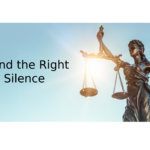Smoking Cannabis While Pregnant is “My Business”

Meet Billie Jo Wilkie, a 21-year-old from one of the most economically and socially disadvantaged suburbs of Sydney.
If you were one of the 935,000 Australians who tuned in to the controversial TV show ‘Struggle Street’, you are probably familiar with her story. Billie is a smoker and regular drug user – and what’s more, she was heavily pregnant at the time of filming.
While the show was a ratings success for SBS, it had significant consequences for Billie. She was perhaps the most criticised identity on ‘Struggle Street’, and has since faced vandalism of her home as well as being yelled at on the street.
Her narrative starts by introducing us to her mother, Carlene, and boyfriend, Bob – both of whom are also regular cannabis users.
Billie was filmed smoking cigarettes and cannabis from a bong. In one episode of the tri-part series, she even jokes about naming her baby Crystal, after the drug crystal methamphetamine.
To the horror of some viewers, Billie even smokes cigarettes in between contractions during labour – which was six weeks early. Despite this, her mother Carlene says that Billie is a “good mum” and that the baby will be a motivator for Billie to pull herself together.
Her parenting practices concerned many. For some, her actions went beyond parental irresponsibility – they were downright criminal.
Criminalising drug use by pregnant women
Many expressed sympathy for Billie’s baby boy, but hardly nowhere near as many felt sorry for Billie.
This is despite the fact that 21 years ago, Billie was born in almost identical circumstances to her son – she was a ‘methadone baby’ due to her mother’s use of the drug throughout her pregnancy.
Even before the show aired, there were calls for such behaviour to be made illegal in Australia.
Even before the ‘Struggle Street’ controversy, we wrote a blog about whether taking drugs while pregnant should be a crime – outlining the pros and cons of criminalising women who engage in such conduct.
As outlined, the US state of Tennessee has made it a criminal offence for women to take drugs while pregnant. The reason behind the law is, of course, that such conduct puts babies at risk of developmental and behavioural problems.
And as also outlined in the blog, the Northern Territory government considered similar laws – but ultimately abandoned the idea.
Sadly, Billie’s child was taken away and placed into protective custody – following in the footsteps of Billie’s first two children.
Billie had spent time behind bars within 24 hours of the first episode airing – charged with theft and driving without a licence twice in the one day.
What happens when the system fails?
We like to think of our society as one that offers everyone ‘a fair go’ to everyone, but shows like ‘Struggle Street’, as confrontational as they may be, drive home the fact that people still slip through the cracks.
Despite her numerous run-ins with the law, the criminal justice system has not transformed Billie into a law-abiding citizen, which just goes to show that locking people away does not necessarily deter them from crime, let alone lead to their rehabilitation.
Instead, ‘Struggle Street’ is just another example of the failure of the present approach – which does little to break the cycle of crime.
While billions of dollars are being pumped into police forces nationwide, funding has been slashed to critical programs that do vital work within the community.Many such programs engage with drug users, dissociated youth and others who are at risk of offending.
Pastor Josh is just one example of someone who has done great work for the youth of Mount Druitt. Sadly, the Pastor has announced that he can no longer remain in his position due to a lack of funding.
Regrettably, this is typical of hundreds of rehabilitation and education programs across Australia which aim to assist and support drug users and others who are vulnerable – many of which have already closed their doors due to funding cuts.
Unfortunately, being ‘tough on crime’ is still the government’s priority, when it should perhaps be to fund programs that educate and support those who are at risk of offending, thereby addressing the causes of crime.
Perhaps it’s time to look at using the ‘carrot’ rather the ‘stick’ to address the underlying reasons for offending rather than withdrawing funding to community programs, then throwing people in prison after they offend.
The ‘stick approach’ really only benefits criminal defence lawyers (who can get more clients and charge them more for fear of being locked away), police forces (who can ask for more funding), private prison companies and contractors (who can build more prisons), politicians (who can win votes by appearing ‘tough on crime’) and a minority of others who gain financially or politically from a heavy-handed criminal justice system – it does not work to the benefit of the taxpayer or general community by reducing crime.






